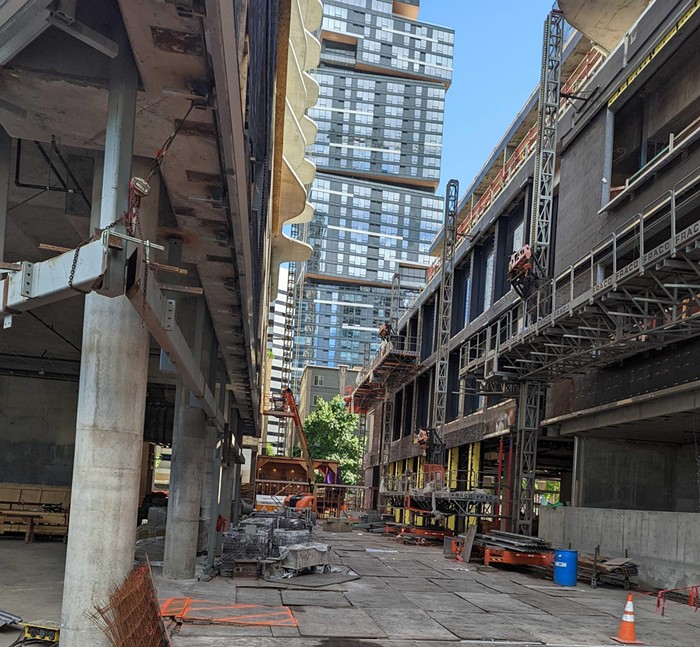
Much of the UK's post-Brexit future is still in a thick fog. Nothing at a distance of a month can be seen, something barely glows at that of a week, and only certain parts of the following day are visible to us. We can only guess how any of this will end. One guess made by the American economist Dean Baker, whose little book, The Conservative Nanny State: How the Wealthy Use the Government to Stay Rich and Get Richer, I discussed in this 2014 post, is that London's overvalued property market will crash.
For nearly three decades, London has been very popular with the investor class—men and women looking for investment opportunities and a place to store surplus cash. (The thing to keep in mind about our global economy is there's a scarcity of investments with high returns and an oversupply of money that's doing nothing and even losing value as it does this nothing.) These investors have been attracted to London because it is (or was), after all, one of the major financial centers (the City) of the world and it looked safe (politically, economically, culturally). Those two things are now in doubt (or, to stick with my opening metaphor, in a fog). Dean Baker then makes a prediction that should catch the ears of those in this (the most beautiful) part of America, the Pacific Northwest:
The important thing is not so much the worth of this predication (London's property market could rebound), but that Seattle is seen (or registered) as a member of this very exclusive club—the global club of investor-grade cities.[The crash of the property market] will be more of a hardship for regular people than for 1 percenters [investor class], who will take steps to cushion themselves (if you live in Vancouver, New York, LA or Seattle, get ready for an all-out assault on your housing stock!).
According to the international real estate services firm Jones Lang LaSalle, in the first half of 2013, foreign investment accounted for 18.3 percent of the $2.9 billion spent on Puget Sound area commercial property, up from virtually nothing in 2011.Meaning, only five years ago, Seattle was not even on the waiting list for membership to this club. That's how fast things happen in a networked world. Now recall that it only took Vancouver, BC 10 years to go from a city for people to a city for money.
Also recall that capitalism as a whole and entities within it rarely grow at nine percent per year. Four percent growth for this kind of economy is amazing. Two percent is just about normal. But a capitalist market that has in a year grown by 16 percent, which is the case with our area's housing market, is so abnormal that it can no longer be considered as or be made sense by capitalism in a strict sense.















